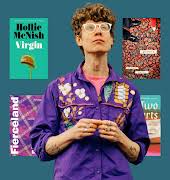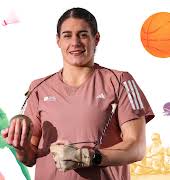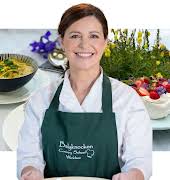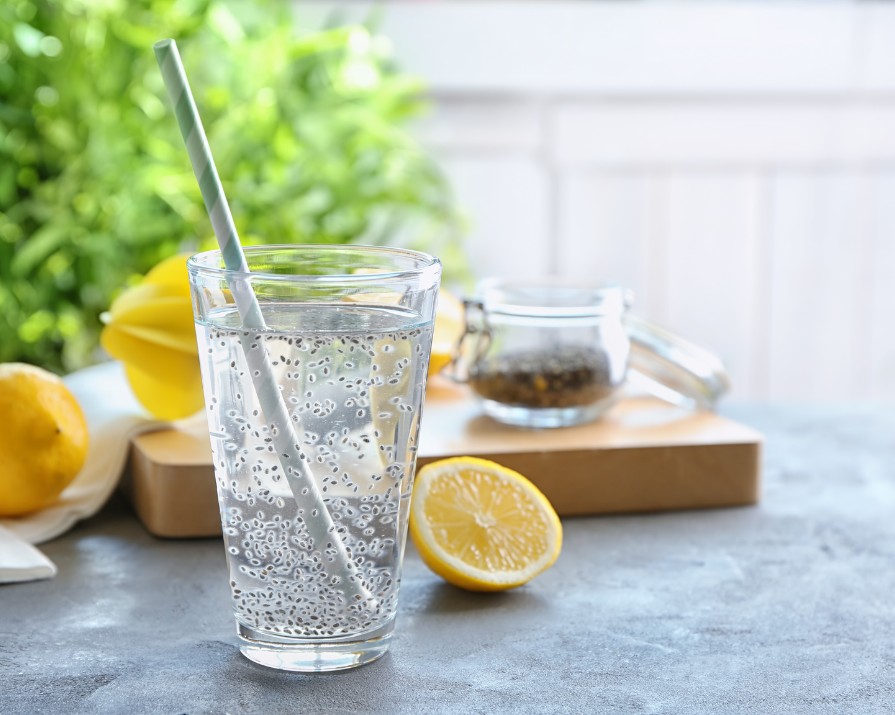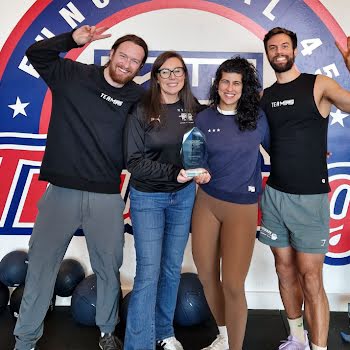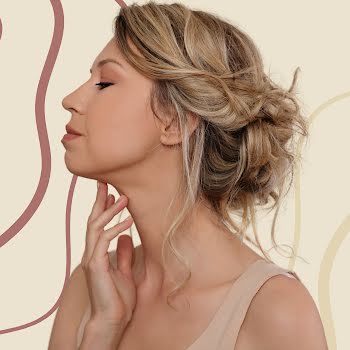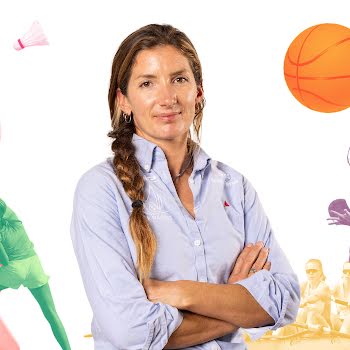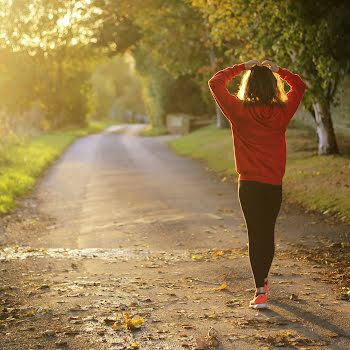By Sarah Finnan
06th Nov 2024
06th Nov 2024
TikTok has been extolling the virtues of chia seed water, a mixture of – yes, you guessed it – chia seeds and water (often with the juice of half a lemon added in for taste) as a ‘natural colonic’ or weight loss aid… but does it work and more importantly, is it safe?
First things first, what are chia seeds?
A post about chia seeds on The Source Bulk Foods’ website, a zero-waste grocer based in Dublin, describes them as an “amazingly versatile food” that can be ground, soaked or sprouted. The ground meal of chia, called Pinole, is great in porridge, cakes and raw food treats while whole seeds are best eaten after soaking. They advise adding seeds to water or juice at a ratio of 1:10 and allowing them to soak for a few hours to create a gelatinous consistency you can then add to smoothies, and juices or use as a base for chia pots.
For a more decadent water, add sliced lime, fresh mint and lemon grass to make a refreshing spritzer. You can also soak the seeds in coconut cream (about 1:8) for a firmer set ‘pudding’. Add cacao, mango, banana, berries, dates, and enjoy as is.
So what are the health benefits?
The good news is that chia seeds pack quite the nutritional punch. They can absorb up to 12 times their weight in liquid, so they’re good for keeping you hydrated. They’re anti-inflammatory and contain minerals including calcium and potassium necessary for good bone health. They’re also high in omega-3 fatty acids and fibre which can improve heart health, reduce cholesterol levels and promote good gut health… and yes, they can aid weight loss too so there’s an element of truth to the trend. Fibre takes longer to digest and makes you feel satiated for longer, which is how it can help with weight loss and decrease your risk of developing diabetes or heart disease. Eating a diet rich in fibre also is shown to protect against colorectal cancer.
One serving of dried chia seeds is about 2.5 tablespoons. This has 140 calories, 5 grams of protein, 10 grams of fibre, 12 grams of carbohydrate and 9 grams of fat, of which 8 grams are heart-healthy fats.
Watch on TikTok
Great, but does it work or is this just another online wellness fad with no substance?
“Chia seeds are certainly a very nutritious food to add to your diet,” Ellen Curran, a registered dietitian based in Dublin tells me. “They are rich in unsaturated ‘healthy’ fats, soluble fibre, plant protein, vitamins, and minerals. We know that including these nutrients in our diet is linked to better health outcomes and reduced risk of chronic diseases like diabetes and cardiovascular disease.”
That said, she’s keen to emphasise that the latest trend of drinking chia seed water to aid weight loss is “misleading and potentially harmful.” “Quick fixes don’t work long-term. Chia seeds are very high in fibre and can cause digestive upset if not introduced slowly. For those with pre-existing gastrointestinal conditions, a sudden increase in fibre intake could be harmful and should ideally be done under guidance from a healthcare professional.” Their gel-like substance could also pose a choking hazard.
Her verdict? “Chia seeds are definitely something to consider adding to your meals and snacks to increase the quality of your diet and your overall health, but you don’t have to drink water with clumps of slime to get the health benefits. They are a great addition to smoothies, porridge, yoghurt cereal, soup, bread – the list goes on. When adding anything new to your diet, it’s important to do so in a way that is realistic, sustainable and enjoyable in order for it to stick long-term. The bottom line is that chia seed water isn’t going to magically transform your body. The idea that it will is just diet culture rhetoric. In fact, a recent study carried out by DCU found that only 2.1% of nutritional videos on TikTok provided accurate information.”
So, how can you better recognise diet culture and unhelpful nutrition advice online?
According to Ellen, there are a few things you should look out for when trying to discern legitimate information from nonsense. The below are red flags and should be avoided:
- Any diet or nutrition plan that sells “quick weight loss” or “rapid results.”
- Anything that encourages you to cut out or avoid certain foods/food groups.
- Anything that labels foods as “good” and “bad”.
- Any plan that encourages you to buy a special supplement or product.
As Ellen points out, “it’s so important to check the credentials of who you’re getting your nutrition information from. A registered nutritionist or dietitian is qualified to provide nutrition information that is evidence-based, reliable and safe.”
In other words, TikTok should not be your go-to source for weight-loss information or nutrition/health advice… so maybe steer clear of this one.
This information is meant to be educational and should not be taken as personalised advice.
Ellen Curran is a registered dietitian.


